About Pat Moore Foundation
The Pat Moore Foundation spent more than 30 years helping men and women struggling with substance use disorder. Their program (which was located in Costa Mesa, California) is closed now, but it provided medically managed and non medical detox alongside treatment. The program incorporated the principles of the 12 Steps.
Something I appreciate about this center is that it emphasized building community both within and outside of treatment. Bonding with other clients as well as community support groups like the 12 Steps is a simple way to greatly broaden your sobriety network and immerse yourself in a support community for your continuing recovery journey.
Gender Specific Groups
The residential campus of this program was co-ed. However, the individualized treatment plans incorporated gender specific care into recovery, adding another layer of personalization. While the groups and activities themselves overlapped significantly, it’s where their focus fell that varied.
Alumni Care
Something else to appreciate about this center is its continuing alumni support. Graduates of the program were welcome to attend weekly meetings where they could catch up, share their successes, and celebrate their sobriety. Alumni groups like these also kept clients in touch with the program, which could be great if they needed further treatment in the future.
Seaside Recovery
Costa Mesa’s closeness to beaches like Huntington Beach and Newport Beach offered a unique way for you to decompress when you’re in recovery. A little outdoor time goes a long way, whether you kick back on the sand or hit the waves. Both physical activity and time spent outdoors have been shown to support good mental health, which in turn can reinforce your sobriety maintenance.
Addiction Treatment Programs
Alcohol Rehab
If you’re ready to overcome alcohol use disorder, an alcohol rehab in California can give you the tools you need. Whether you need detox, inpatient treatment, or outpatient care, an alcohol program will help you build a new lifestyle based on healthy coping mechanisms, better relationships, and a new way of thinking about life.
Dual Diagnosis
Many people with addiction issues also have a mental health diagnosis, which is known as a dual diagnosis. Be sure to find a rehab in California that can treat both. Whether you need detox, inpatient treatment, or outpatient care, a dual diagnosis program will offer specific support for your mental health needs alongside traditional substance use treatment.
Opioid Addiction
The goal of an alcohol rehab in California is to give you the tools and skills you need to achieve long-term recovery. During this program, you’ll work with professional counselors to deal with the psychological, emotional, and physical issues that opioid misuse can cause. Over time, you’ll learn how to live without substance use long-term.
Adult Program
An adult program in California addresses the unique needs of adults, such as finding secure housing, building a career, and raising a family. Whether you need detox, inpatient treatment, or outpatient care, an adult program will offer specific support for your emotional, mental, and social needs.
Men's Rehab
Choosing a men’s rehab in California can be a great way to manage gender-specific issues while also addressing substance use. Whether you need detox, inpatient treatment, or outpatient care, a men’s program will offer specific support for your emotional, mental, and social needs.
Women's Rehab
If you’re a woman struggling with substance use, consider a women’s rehab program in California. Whether you need detox, inpatient treatment, or outpatient care, a women’s program will offer specific support for your emotional, mental, and social needs.
Young Adult Rehab
Young adult rehabs in California address a wide range of substance use issues while also helping clients transition into adulthood. Whether you need detox, inpatient treatment, or outpatient care, a young adult program will offer specific support for your emotional, mental, and social needs.
Insurance Coverage
Private insurance
Paying for rehab in California is easier if you use private insurance. Keep in mind that coverage levels may vary, and it’s important to try to find a center that’s in-network with your plan. Be sure to ask about your out-of-pocket costs, such as copayments and deductibles.
Self-pay options
Paying the full cost of rehab in California yourself is called self-pay. Some people write a check, some electronically send payment to the treatment center, and others get a medical loan. There may be different fee structures depending on the level of care.
Levels of Care
- 1
Detox Treatment
The first step to a substance-free lifestyle is detox in California. Most detox programs last around one week, although some are longer. You will generally receive medical treatment for withdrawal symptoms as well as treatment planning for the next stage of rehab.
- 2
Inpatient Rehab
There are multiple options for addiction treatment in California. During inpatient treatment, you live at the facility and are able to focus on creating a new way of life. During inpatient treatment, clients are able to work on their recovery through counseling, activities, and holistic treatment like mindfulness, art therapy, and more.
- 3
Outpatient Rehab
Attending outpatient treatment in California allows you to get evidence-based care without living in the facility, helping you establish long-term recovery. Building a new life for yourself takes time, and it’s important to have enough support throughout the process. Outpatient treatment allows you to have more intensive or less intensive help, depending on your needs.
Therapies
Experiential Therapy
In California, experiential therapy is a holistic therapy that is widely used in addiction treatment. By participating in art, music, or physical activities like hiking, you can learn to face internal issues without turning to substance use. Instead, you’ll develop healthy coping mechanisms.
Family Therapy
Attending family therapy in California is a way to address broken relationships and dysfunction, helping you establish long-term recovery. There are several goals in family therapy. Some sessions may be focused on specific past events, while others address current broken relationships or how good intentions have gone astray. Over time, family relationships can be restored, making recovery easier.
Group Therapy
Attending group therapy in California is a way to overcome shame and isolation, helping you establish long-term recovery. Substance use treatment includes detox, inpatient treatment, and outpatient care, and group therapy may be a part of each of these stages. The goal is to help clients support each other, provide accountability, and relate to each other’s experiences.
Individual Therapy
During individual therapy in California, clients work with a professional to address specific individual concerns. Some of the topics covered in individual therapy include developing healthy coping skills, addressing past events that may have played a part in substance use, and building a support network.
Recreational Therapy
The goal of recreational therapy in California is to help you learn to trust and work with others so you can create positive change. During recreational therapy, you’ll participate in games, obstacle courses, nature exposure, and more, so that you can learn healthy relationship-building and gain confidence in your ability to overcome challenges.
Fitness Therapy
Accreditations
Location
Contact Pat Moore Foundation
Top Drug Rehab Centers in California
-
 California
CaliforniaCityteam Mens Program
580 Charles Street San Jose, California 95112
-
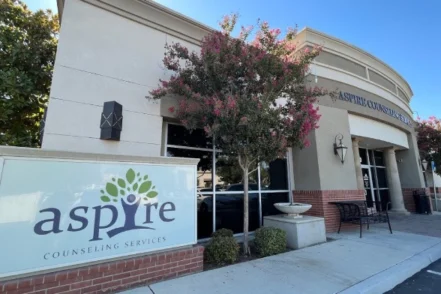 California
CaliforniaAspire Counseling Services
9830 Brimhall Road Bakersfield, California 93313
-
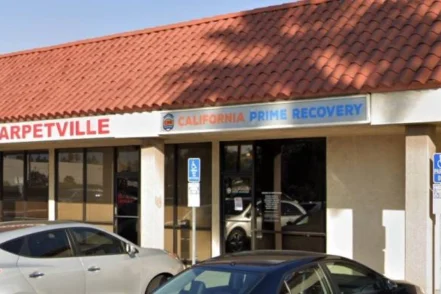 California
CaliforniaCalifornia Prime Recovery
17330 Newhope Street, Unit A Fountain Valley, California 92708
-
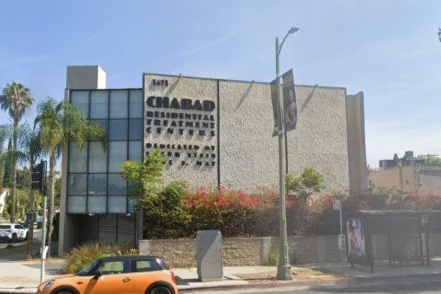 California
CaliforniaChabad Residential Treatment Center
5675 West Olympic Boulevard Los Angeles, California 90036
-
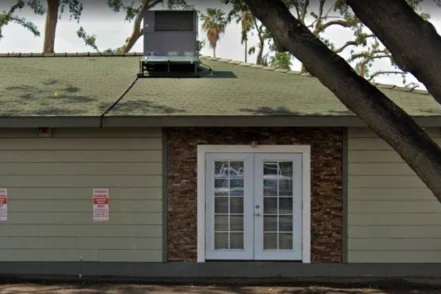 California
CaliforniaBakersfield Recovery Services IOP Services
2920 H Street Bakersfield, California 93301
-
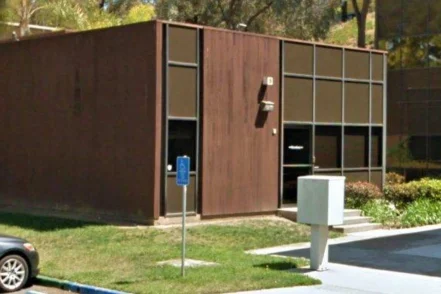 California
CaliforniaSHORELINE Recovery Center
183 Calle Magdalena, Suite 101 Encinitas, California 92024
-
 California
CaliforniaReflections Executive Rehab Facility
1191 Simmons Lane Novato, California 94945
-
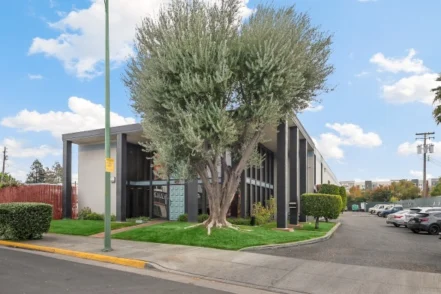 California
CaliforniaNew Life Recovery Centers 782 Park Avenue
782 Park Avenue, Suite 1 San Jose, California 95126
-
 California
CaliforniaNew Found Life Long Beach
2211 E Ocean Blvd Long Beach, California 90803
-
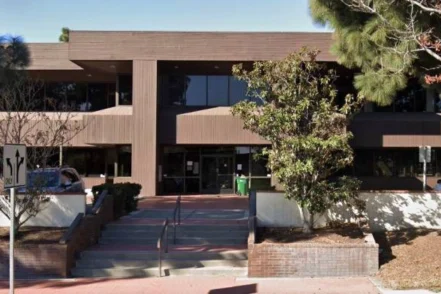 California
CaliforniaRenaissance Recovery
10175 Slater Ave, Suite 200 Fountain Valley, California 92708
-
 California
CaliforniaOptions Recovery Services Berkeley
1835 Allston Way Berkeley, California 94703
-
 California
CaliforniaCornerstone of Southern California Santa Ana
13022 Yorba St Santa Ana, California 92705
-
 California
CaliforniaWindward Way Recovery
3822 Campus Dr Suite 500 Newport Beach, CA 92660
-
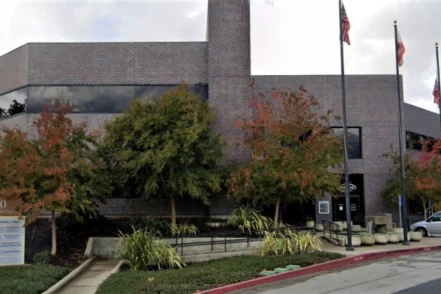 California
CaliforniaDiablo Valley Drug and Alcohol Services
100 Park Place, Suite 120 San Ramon, California 94583
Other Popular California Cities
Browse by California cities
- Calabasas
- Calexico
- Calistoga
- Camarillo
- Cameron Park
- Camp Pendleton
- Campbell
- Campo
- Canoga Park
- Canyon Country
- Capistrano Beach
- Capitola
- Carlsbad
- Carmel
- Carmichael
- Carson
- Castro Valley
- Cathedral City
- Century City
- Ceres
- Cerritos
- Chatsworth
- Chico
- Chino
- Chino Hills
- Chowchilla
- Chula Vista
- Citrus Heights
- City of Industry
- Claremont
- Clearlake
- Clearlake Oaks
- Clovis
- Coachella
- Coalinga
- Coloma
- Colton
- Colusa
- Commerce
- Compton
- Concord
- Copperopolis
- Corcoran
- Corning
- Corona
- Corona Del Mar
- Corte Madera
- Costa Mesa
- Cotati
- Covelo
- Covina
- Crescent City
- Crestline
- Culver City
- Cupertino
- La Crescenta
- La Habra
- La Jolla
- La Mesa
- La Mirada
- La Puente
- La Quinta
- La Verne
- Ladera Ranch
- Lafayette
- Laguna Beach
- Laguna Hills
- Laguna Niguel
- Laguna Woods
- Lake Arrowhead
- Lake Elsinore
- Lake Forest
- Lake Hughes
- Lakeport
- Lakeside
- Lakewood
- Lamont
- Lancaster
- Lawndale
- Lemon Grove
- Lemoore
- Lincoln
- Live Oak
- Livermore
- Livingston
- Lodi
- Loma Linda
- Lomita
- Lompoc
- Long Beach
- Loomis
- Los Alamitos
- Los Altos
- Los Angeles
- Los Banos
- Los Gatos
- Loyalton
- Lucerne
- Lucerne Valley
- Lynwood
- Madera
- Malibu
- Mammoth Lakes
- Manteca
- Marina
- Marina Del Rey
- Mariposa
- Markleeville
- Martinez
- Marysville
- Mather
- Mcclellan
- Menlo Park
- Mentone
- Merced
- Middletown
- Mill Valley
- Mission Hills
- Mission Viejo
- Modesto
- Mojave
- Monrovia
- Montclair
- Montebello
- Monterey
- Moorpark
- Moreno Valley
- Morgan Hill
- Mountain View
- Murrieta
- Pacific Grove
- Pacific Palisades
- Pacifica
- Pacoima
- Palm Desert
- Palm Springs
- Palmdale
- Palo Alto
- Palos Verdes Peninsula
- Panorama City
- Paradise
- Paramount
- Pasadena
- Patterson
- Perris
- Petaluma
- Pico Rivera
- Piru
- Pittsburg
- Placentia
- Placerville
- Playa Del Rey
- Pleasanton
- Pollock Pines
- Pomona
- Port Hueneme
- Porterville
- Poway
- Sacramento
- Salinas
- San Anselmo
- San Bernardino
- San Bruno
- San Carlos
- San Clemente
- San Diego
- San Dimas
- San Fernando
- San Francisco
- San Jacinto
- San Jose
- San Juan Capistrano
- San Leandro
- San Lorenzo
- San Luis Obispo
- San Marcos
- San Martin
- San Mateo
- San Pablo
- San Pedro
- San Rafael
- San Ramon
- San Ysidro
- Sanger
- Santa Ana
- Santa Barbara
- Santa Clara
- Santa Clarita
- Santa Cruz
- Santa Fe Springs
- Santa Maria
- Santa Monica
- Santa Paula
- Santa Rosa
- Santa Ynez
- Santee
- Saratoga
- Sausalito
- Scotts Valley
- Seaside
- Sebastopol
- Sherman Oaks
- Sherwood Forest
- Sierra Madre
- Signal Hill
- Simi Valley
- Skyforest
- Solana Beach
- Sonora
- Soquel
- South El Monte
- South Gate
- South Lake Tahoe
- South San Francisco
- Spring Valley
- St. Helena
- Stanton
- Stockton
- Studio City
- Sun Valley
- Susanville
- Sylmar
